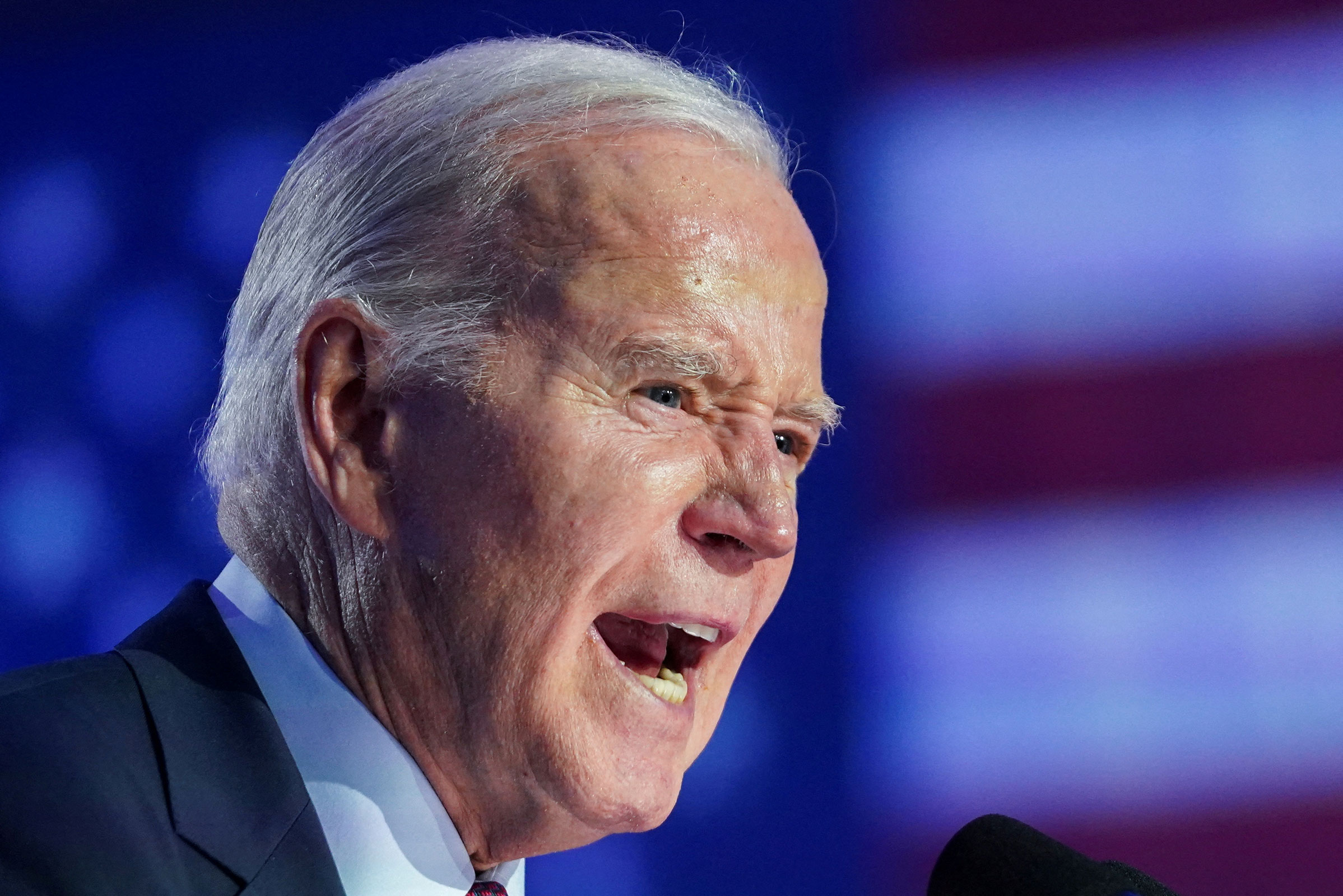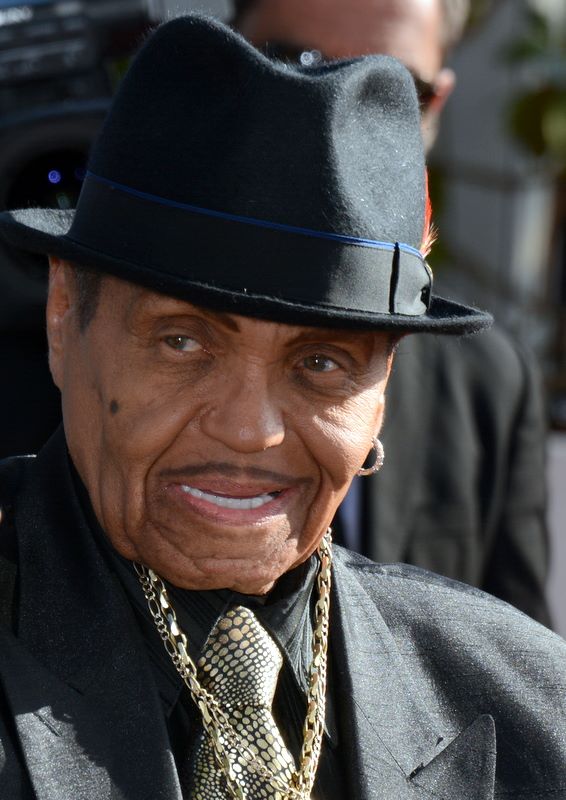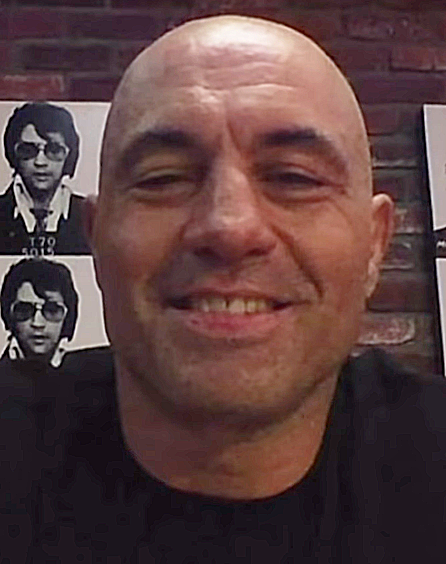
In an era of increasingly polarized discourse and rapidly shifting media landscapes, the actions and words of prominent public figures often trigger widespread debate, revealing the intricate dynamics of free speech, corporate influence, and cultural resonance. One such recent flashpoint emerged from the commentary of podcaster Joe Rogan, whose observations on the suspension of late-night host Jimmy Kimmel sparked considerable discussion regarding the role of government, media, and celebrity in shaping public opinion. His statements, delivered with characteristic candor, cast a critical eye on the implications of such interventions for all sides of the political spectrum.
Yet, the name ‘Joe’ itself carries a multifaceted legacy within the broader public consciousness, extending far beyond the realm of contemporary political commentary. From the soulful melodies of an acclaimed R&B artist whose career spans decades of musical evolution, to the quiet, steadfast contributions of a dedicated community member, the public record reveals a rich tapestry of individuals who, despite sharing a common given name, have carved out distinctly impactful paths. This article delves into these diverse narratives, examining the specific contours of their influence and the broader lessons their stories offer about public life and enduring legacies.
We embark on an exploration of these compelling figures, beginning with the recent commentary that propelled Joe Rogan into the headlines, then transitioning to the remarkable journey of an R&B icon, Joseph Lewis Thomas, whose artistic contributions have indelibly shaped the sound of a generation. Through this comparative lens, we aim to provide an in-depth analysis of how different ‘Joes’ navigate public life, demonstrating the varied ways individuals leave their mark on society and spark crucial conversations.

1. **Joe Rogan’s Unflinching Stance on Government Intervention in Comedy**The controversy surrounding late-night host Jimmy Kimmel’s brief suspension from ABC ignited a significant debate about the boundaries of comedic expression and the potential for governmental pressure on media companies. Amidst this national conversation, podcaster Joe Rogan, a figure known for his candid and often provocative commentary, offered a clear and unequivocal position on the matter. His remarks underscored a fundamental principle concerning freedom of speech and the arts, emphasizing that official bodies should not dictate creative content.
Rogan stated emphatically on an episode of his influential podcast, *The Joe Rogan Experience*, that he believes, “the government should not be involved ever in dictating what a comedian can or cannot say in a monologue. That’s f***ing crazy.” This direct condemnation highlighted his concern over any precedent that would grant governmental entities the authority to censor or control artistic and comedic expression. His perspective draws a line against attempts to regulate speech, particularly when it comes from a creative medium like stand-up or late-night comedy, which often thrives on challenging norms and satirizing political figures.
His delayed response to the news, which he attributed to being on a mountain trip with limited internet service, only served to heighten anticipation for his take on the situation. Upon his return, Rogan quickly addressed the unfolding events, placing the discussion firmly within the broader context of free speech protections. His statement was not merely a defense of Kimmel but a broader philosophical assertion about the dangers of state-sponsored interference in creative industries, signaling a deep-seated belief in the importance of an unencumbered public forum for ideas, even those that may be contentious.
2. **Rogan’s Stark Warning to Political Supporters on Censorship Precedent**Beyond his general disapproval of government involvement in comedic content, Joe Rogan issued a pointed warning directly to conservatives who might have celebrated Jimmy Kimmel’s suspension. He articulated a pragmatic and somewhat cynical view that such actions, if supported by one political faction, could inevitably be turned against them in the future. This insight speaks to the cyclical nature of power and the potential for precedents set today to haunt tomorrow’s political landscape, regardless of who is in charge.
Addressing the potential for companies to be pressured by governmental entities, Rogan cautioned, “The problem is the companies, if they’re being pressured by the government, so if that’s real and if people on the right are like, ‘Yeah, go get ’em.’ Oh my God, you are crazy. You are crazy for supporting this because this will be used on you.” This statement was a direct challenge to the short-sightedness of partisan support for censorship, emphasizing that such tactics are not exclusive to one ideological camp and can be weaponized universally.
His warning serves as a critical reminder in the ongoing debates about media regulation and content moderation. It suggests that while a particular group may benefit from the silencing of opposing voices in the short term, the underlying mechanism of censorship, once normalized, becomes a tool available to any dominant power. Rogan’s analysis implicitly urges a consistent defense of free speech principles, irrespective of political allegiance, advocating for a long-term perspective on civil liberties rather than immediate political gains.

3. **The Spark of Controversy: Jimmy Kimmel’s Monologue and Its Immediate Aftermath**At the heart of the recent media firestorm was a specific comment made by Jimmy Kimmel during his September 15 episode of *Jimmy Kimmel Live!*, which quickly drew significant online scrutiny and backlash from conservative circles. The remark, made in the context of discussing the alleged killer of conservative activist Charlie Kirk, became the catalyst for an intense period of pressure on ABC and Kimmel himself, leading to a temporary suspension of his show. The incident highlighted the rapid and often unforgiving nature of online outrage and its capacity to influence corporate decisions.
Kimmel’s precise words that ignited the controversy were, “We hit some new lows over the weekend with the MAGA gang desperately trying to characterize this kid who murdered Charlie Kirk as anything other than one of them and doing everything they can to score political points from it.” This statement was perceived by many as an unfair generalization and an attempt to link a tragic event to a political movement, drawing criticism for its political framing and apparent lack of nuance. The segment concluded with a clip of Donald Trump, seemingly in an attempt to underscore Kimmel’s point, further fueling the contention.
Joe Rogan, a comedian himself, later commented on Kimmel’s monologue, acknowledging its comedic intent despite the contentious framing. Rogan stated, “I think what he was trying to do was just set up a joke. He was trying to knock on the MAGA people, but also set up a joke, which was good. It was very funny.” This perspective suggested that while the content was controversial, Kimmel’s primary objective was comedic, aiming for a laugh through political satire, even if the execution led to unintended consequences and significant public outcry.
Read more about: Jimmy Kimmel’s Profound Metamorphosis: From ‘The Man Show’ Provocateur to Late-Night’s Polarizing Conscience Caught in a Firestorm

4. **Early Life and Foundations of R&B Icon Joseph Lewis Thomas**Shifting our focus to another prominent figure named Joe, Joseph Lewis Thomas, known mononymously as Joe, embarked on a distinct path rooted in the world of R&B music. Born on July 5, 1973, in Columbus, Georgia, his early life was shaped by a unique spiritual environment. The son of evangelist preachers, Joe’s formative years were steeped in a household dedicated to religious expression, an upbringing that likely instilled in him a profound appreciation for vocal delivery and lyrical narrative.
His family’s relocation to Opelika, Alabama, during his formative years marked another significant chapter in his development. It was in Opelika that he continued to cultivate his talents and prepare for his future career. Joseph Thomas honed his skills through dedication and hard work, ultimately graduating from Opelika High School in 1991, laying the groundwork for his eventual entry into the competitive music industry. This period of his life was crucial in shaping his musical sensibilities and preparing him for the demands of a professional career.
Following his high school graduation, Joe did not immediately launch into stardom. Instead, he continued to pursue his passion for singing and songwriting, taking on occasional temporary jobs to support himself. This period of dedication and perseverance, combined with further music education through a local church in New Jersey, eventually led him to a pivotal encounter with producer Vincent Herbert. This meeting, resulting in a crucial three-song demo tape, marked the true genesis of his professional recording career, a journey that would see him become one of R&B’s most enduring voices.

5. **The Debut: Joseph Thomas’s Entry into the Music Industry with ‘Everything’**Joseph Lewis Thomas’s burgeoning talent quickly caught the attention of industry professionals, leading to a significant milestone in 1992 when he signed with Polygram Records. This pivotal signing set the stage for his official debut in the music world, culminating in the release of his first album, *Everything*, the following year. This debut effort was a critical step in establishing his presence as a solo artist and showcasing his unique vocal abilities and songwriting prowess to a wider audience.
The album, produced by Joe himself alongside collaborators Keith Mille, J. Dibbs, and Dave “Jam” Hall, offered listeners an initial taste of his R&B style. *Everything* performed respectably on the charts, peaking at number 105 on the US Billboard 200 and reaching number 16 on Billboard’s Top R&B/Hip-Hop Albums chart. These early chart positions signaled a promising start for the emerging artist, demonstrating his potential to connect with both pop and R&B audiences.
From *Everything*, three singles were spawned, most notably “I’m in Luv” and “The One for Me.” “I’m in Luv” proved to be an early success, climbing into the top ten on the Hot R&B/Hip-Hop Songs chart and even achieving international recognition by peaking at number 22 on the UK Singles Chart. The following year, Joe also featured in the group Black Men United, collaborating with fellow artists like Brian McKnight and Gerald Levert on the single “U Will Know” for the *Jason’s Lyric* soundtrack, further broadening his exposure and establishing his versatility within the R&B scene.

6. **Commercial Breakthrough: Joseph Thomas’s Rise to Prominence with Jive Records**Joseph Thomas’s career trajectory gained significant momentum following his move to Jive Records, a partnership that would define a major era of his success. In 1996, his contribution of the song “All the Things (Your Man Won’t Do)” to the soundtrack for the film *Don’t Be a Menace to South Central While Drinking Your Juice in the Hood* served as a powerful prelude to his forthcoming album. Released as a single, this track became a significant hit, reaching number 11 on the US Billboard Hot 100, foreshadowing the substantial commercial appeal of his work.
This success paved the way for his second studio album, *All That I Am*, released in 1997, which solidified his commercial breakthrough. The album, featuring “All the Things (Your Man Won’t Do)” as its opening track, resonated strongly with audiences, charting impressively at number 13 on the US Billboard 200 and reaching number 4 on the Billboard Top R&B/Hip-Hop Albums chart. Its widespread appeal demonstrated Joe’s increasing popularity and his ability to craft music that crossed over into mainstream success.
Another significant hit from *All That I Am*, “Don’t Wanna Be a Player,” further cemented his status, also being featured on the *Booty Call* soundtrack. The album’s strong performance led to its eventual certification as platinum in the US, marking a crucial moment in Joseph Thomas’s career where his talent transitioned into undeniable commercial triumph. This period established him as a consistent hitmaker and a formidable force in the R&B genre.

7. **Collaborative Genius: Joseph Thomas’s Work with Industry Peers and Chart Successes**As Joseph Thomas’s reputation grew, he became highly sought after not only as a singer but also as a talented songwriter and producer, frequently collaborating on projects with other artists throughout the mid-1990s. His versatility and keen musical ear allowed him to contribute to a diverse range of projects, showcasing his skill beyond his solo material. These collaborations enriched his artistic portfolio and demonstrated his deep understanding of musical craftsmanship, extending his influence across the R&B landscape.
Among his notable collaborative works, Joe remixed a duet by legendary artists Barry White and Tina Turner, titled “In Your Wildest Dreams,” and also contributed a remix to Turner’s single “Something Beautiful Remains” from her album *Wildest Dreams* (1996). He lent his songwriting and production talents to albums by prominent R&B groups such as Ideal, Xscape, and Hi-Five, further establishing his behind-the-scenes impact. Additionally, he sang on the remix of Big Punisher’s “Still Not a Player,” which ingeniously interpolated his own hit “Don’t Wanna Be a Player,” and provided backing vocals for Brandy’s track “Angel in Disguise” from her acclaimed album, *Never Say Never* (1998).
A crowning achievement in his collaborative efforts came in 1999 when superstar Mariah Carey invited him to sing on her track “Thank God I Found You,” featured on her album *Rainbow*. Released as the album’s second single, this collaboration soared to become Joe’s first number-one single on the US Billboard Hot 100 and was subsequently certified Gold by the Recording Industry Association of America (RIAA). The song also achieved significant international charting, reaching number two in Canada, top ten in the United Kingdom, and within the top thirty in Australia, Belgium, France, Germany, and Switzerland, solidifying his global reach and collaborative prowess.

8. **Peak Global Success: Joseph Thomas’s *My Name Is Joe* and Chart Domination**Joseph Lewis Thomas, known professionally as Joe, reached a new pinnacle in his career with the release of his third album, *My Name Is Joe*, in April 2000. This highly anticipated project received favorable reviews from music critics and swiftly ascended the charts, underscoring his growing influence in the R&B landscape. The album’s strong performance was a testament to his consistent artistic vision and evolving sound, which resonated widely with audiences across various demographics.
*My Name Is Joe* notably peaked at number two on the Billboard 200, demonstrating significant crossover appeal beyond the R&B genre. It also topped the Top R&B/Hip-Hop Albums chart, firmly cementing his status as a leading figure in contemporary R&B. Furthermore, the album achieved international success, charting within the top 10 in both the Netherlands and Canada, expanding his global footprint and solidifying his reputation as a formidable musical force.
From this acclaimed album, three singles emerged, further propelling Joe’s mainstream success. “I Wanna Know” and “Stutter” both achieved top-five positions on the US Billboard Hot 100, becoming signature tracks in his extensive discography. *My Name Is Joe* became the biggest seller of his career, earning triple-platinum certification from the Recording Industry Association of America (RIAA), alongside platinum and silver certifications from Music Canada, Syndicat National de l’Édition Phonographique (SNEP), and the British Phonographic Industry (BPI). Its commercial triumph and critical reception led to Grammy Award nominations in 2001 for Best R&B Album and Best Male R&B Vocal Performance for “I Wanna Know,” marking a significant period of recognition for his artistry.

9. **Sustained Recognition and Critical Acclaim: Joseph Thomas’s Albums *Better Days* and *And Then…***
The momentum from *My Name Is Joe*’s success carried into Joseph Thomas’s subsequent releases, further cementing his position as a consistent hitmaker and critically acclaimed artist. His fourth album, *Better Days*, released the year following his major breakthrough, continued to demonstrate his dedication to crafting soulful and impactful R&B music. While its commercial performance was notably less expansive than its predecessor, the album maintained his artistic integrity and appeal within the R&B community.
*Better Days* reached number 32 on the Billboard 200 and peaked impressively at number four on the Top R&B/Hip-Hop Albums chart, achieving gold status in the US. This album yielded two singles that resonated particularly with R&B listeners: “Let’s Stay Home Tonight,” which reached number 18 on the Hot R&B/Hip-Hop Songs chart, and “What If a Woman,” an Adult R&B Songs chart-topper. The album’s critical reception was strong, leading to its status as his second album to receive a Grammy nomination in the Best R&B Album category, with “Let’s Stay Home Tonight” also nominated for Best Male R&B Vocal Performance.
Following *Better Days*, Joe released his fifth studio album, *And Then…*, in late 2003. For this project, he collaborated with a diverse roster of high-profile musicians, including Carvin & Ivan, Dre & Vidal, R. Kelly, and The Underdogs, enriching its sound and production. *And Then…* reached number 26 on the US Billboard 200, showcasing his continued ability to deliver commercially viable and artistically compelling work. The album’s lead single, “More & More,” penned by R. Kelly, became a top 20 R&B hit in the US. Elsewhere, it was released on a double A-side with “Ride Wit U,” a collaboration with rap group G-Unit, which became one of his biggest hits in the UK, entering Australia’s top 40 and peaking at number 12 on the UK Singles Chart. The consistent sales of *And Then…* eventually led to its certification as gold by the Recording Industry Association of America (RIAA), reaffirming his sustained appeal.

10. **Transition and Departure from Major Labels: *Ain’t Nothin’ Like Me* and the Shift to Independence**
The mid-2000s marked a significant period of transition for Joseph Thomas, as his career trajectory began to shift from the major label system towards independent ventures. His sixth album, *Ain’t Nothin’ Like Me*, released in April 2007, featured collaborations with prominent producers such as Stargate, Tank, Cool & Dre, Bryan-Michael Cox, and Sean Garrett, alongside guest appearances by esteemed rappers including Nas, Fabolous, Papoose, Young Buck, and Tony Yayo. This blend of R&B and hip-hop influences showcased Joe’s adaptability and willingness to explore new sounds.
Receiving generally positive reviews from music critics, *Ain’t Nothin’ Like Me* debuted impressively at number two on the US Billboard 200 and topped the Top R&B/Hip Hop Albums chart. Selling approximately 98,000 copies in its first week, it marked his highest-charting album since *My Name Is Joe*, underscoring his enduring appeal and strong fanbase. While the lead single “Where You At” primarily charted in the United Kingdom, the follow-up track, “If I Was Your Man,” achieved considerable success, reaching number three on Billboard’s Adult R&B Songs chart.
However, *Ain’t Nothin’ Like Me* proved to be Joseph Thomas’s final album with Jive Records. His departure from the label followed reports of dissatisfaction regarding the promotion of his material, a common challenge for artists seeking greater control over their creative and commercial output. This pivot marked a crucial turning point, leading him to explore new avenues for releasing his music independently, which would characterize the next phase of his illustrious career.

11. **Independent Spirit and Evolving Sound: Joseph Thomas’s Later Career**Following his departure from Jive Records, Joe embarked on a new chapter defined by independent releases, demonstrating an unwavering commitment to his artistic vision. His seventh album, *Joe Thomas, New Man*, was released in September 2008 through record label executive Kedar Massenburg’s Kedar Entertainment company. This independent effort, featuring production by Bryan-Michael Cox, Stereotypes, and D’Mile, debuted at number eight on the US Billboard 200, selling 56,733 copies in its first week. Its lead single, “E.R. (Emergency Room),” became a top forty hit on Billboard’s Hot R&B/Hip-Hop Songs chart.
Just ten months later, in 2009, Joe released *Signature*, his second album with Kedar Entertainment. This project, primarily composed of ballads, showcased Joe’s comprehensive talents as he wrote, produced, and arranged the entire album himself. *Signature* debuted at number seven on the Billboard 200 and number two on the Top R&B/Hip-Hop Albums chart, further proving his consistent commercial appeal even outside the major label system. The same year, he released the holiday EP *Make Sure You’re Home for Christmas*, which was later expanded into the full-length album *Home Is the Essence of Christmas* in 2010.
Joe continued to release music steadily throughout the 2010s, maintaining a strong presence on the R&B charts. His ninth studio album, *The Good, the Bad, the Sexy*, released in 2010, debuted at number eight on the Billboard 200 and number two on the Hot R&B/Hip Hop albums chart. His tenth studio album, *Doubleback: Evolution of R&B* (2013), marked his first release on Massenburg’s newly formed Massenburg Media and debuted at number six on the Billboard 200 and number one on the R&B/Hip Hop chart. His eleventh album, *Bridges* (2014), under Plaid Takeover Entertainment, continued his run of top ten entries on the Billboard 200, peaking at number 17. His twelfth album, *My Name Is Joe Thomas* (2016), an homage to his 2000 bestseller, debuted at number two on the Top R&B/Hip-Hop Albums chart, and its lead single “So I Can Have You Back” became his fourth number-one hit on the Adult R&B Songs chart, spanning three consecutive decades.

12. **Accolades and Enduring Influence: The Legacy of R&B Artist Joseph Lewis Thomas**Joseph Lewis Thomas’s consistent output and undeniable talent have garnered him significant recognition and numerous accolades throughout his career, solidifying his status as a revered figure in R&B music. His impact extends beyond chart performance, encompassing a long history of critical praise and industry honors. This sustained acknowledgment speaks to the enduring quality of his artistry and his profound influence on the genre.
In 2010, Billboard magazine recognized his lasting contribution by listing him at 48th on its prestigious list of the Top 50 R&B and Hip Hop Artists of the past 25 years. This placement highlighted his longevity and consistent relevance in a rapidly evolving musical landscape. Such recognition from a leading industry publication underscores the breadth and depth of his influence, marking him as a significant voice across generations of R&B listeners and creators.
Beyond critical listings, Joe has been the recipient of an ASCAP Award for his hit song “I Wanna Know.” He is also a seven-time Grammy Award nominee, with nominations across various categories including Best R&B Album, Best Male R&B Vocal Performance, Best Pop Collaboration with Vocals, and Best R&B Performance by a Duo or Group with Vocals. His distinguished career has also seen him nominated for numerous other esteemed awards and accolades, including a BET Award, an NAACP Image Award, and four Soul Train Music Awards, collectively celebrating his widespread appeal and impact within the music industry.

13. **Joseph J. Praino: A Life of Service and Community Engagement**Beyond the realm of music and media commentary, the name ‘Joe’ also resonates through the life and contributions of individuals whose impact is felt deeply within their communities. Joseph J. Praino, born on October 27, 1932, in Norwood, Massachusetts, exemplified a life dedicated to service and steadfast commitment. His journey, which concluded peacefully on September 14, 2025, in Richland, WA, showcased a dedication to family, country, and community.
The year 1955 marked several pivotal moments in Joseph Praino’s early adulthood. In February, he received an honorable discharge from the Army, having served as a Sergeant (E.5), a testament to his military service and leadership. Shortly after, in April, he married Mary Folan, the woman he described as the love of his life, beginning a union that would span more than 56 years. His military clearance proved instrumental in his employment with General Electric, signaling the start of a distinguished professional career.
Demonstrating a profound commitment to lifelong learning, Joseph Praino pursued higher education while working full-time. He graduated from Columbia Basin College in 1959 and continued his academic journey by pursuing a degree in Business Administration through correspondence courses with Eastern. For his senior year, he commuted between Richland and Cheney, ultimately graduating in 1962. This dedication culminated in a forty-year career with the Pacific Northwest National Laboratories, where he retired as a Business Administration Manager, leaving a legacy of professional excellence and diligent service.

14. **A Pillar of the Community: Joseph J. Praino’s Dedication to Youth and Family**Joseph J. Praino’s commitment to his community extended significantly into the realm of youth development and sports, where he became a beloved and influential figure. He was actively involved in various youth sports programs, including YMCA and church league basketball and baseball. His dedication spanned from Little League to Legion baseball in both Richland and Kennewick, demonstrating a consistent presence in the lives of young athletes and fostering a spirit of healthy competition and teamwork.
After his time as a coach, Joe transitioned into a prominent role as an announcer for various baseball teams, lending his voice and enthusiasm to the sport he clearly cherished. He served as the announcer for the CBC Hawks, Richland Bombers, Richland Knights, Kennewick Dusters, and the Kennewick Bandits during numerous baseball seasons. Through his announcing, he not only entertained but also contributed to the vibrant atmosphere of local sporting events, becoming a familiar and respected voice within the community.
His personal life was marked by deep family bonds. Joseph was preceded in death by his beloved wife, Mary, after more than 56 years of marriage, as well as his parents, grandson Luke LaSalle, and several siblings. He is survived by his daughters Cathie Tate and Sheila LaSalle, and sons Steve, Jack, Dave, and Tim, along with 12 grandchildren and seven great-grandchildren. His enduring legacy is reflected not only in his professional and community achievements but also in the large, loving family he built and the countless lives he touched through his unwavering dedication and leadership.
In reflecting on these disparate yet equally impactful figures, it becomes evident that the name ‘Joe’ encompasses a wide spectrum of public influence and contribution. From the incisive media commentary of Joe Rogan, challenging notions of free speech and government overreach, to the enduring R&B artistry of Joseph Lewis Thomas, whose soulful melodies have soundtracked generations, and the quiet, steadfast community building of Joseph J. Praino, whose life of service shaped his local landscape, each ‘Joe’ leaves an indelible mark. Their narratives, distinct in their domains, collectively illustrate the multifaceted ways individuals engage with the public sphere, inspire action, and foster dialogue, reminding us that influence manifests in myriad forms, all contributing to the rich tapestry of public life.




